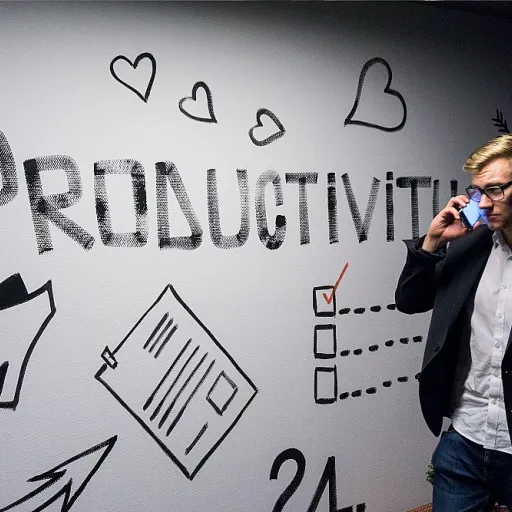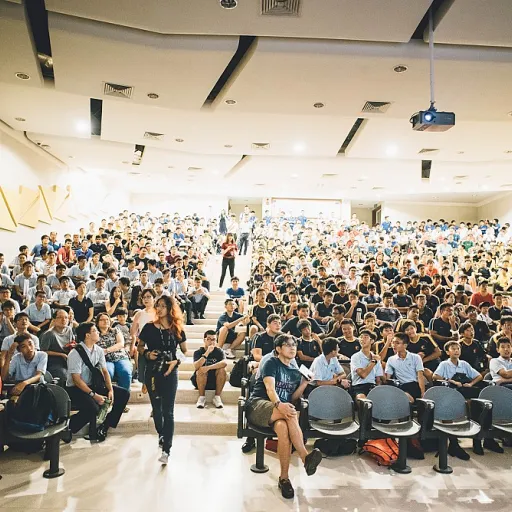
Understanding AI in Recruitment
Deciphering Artificial Intelligence in Modern Recruiting
Artificial intelligence (AI) has gradually transformed the hiring landscape, reshaping how companies identify and onboard talent. At its core, AI recruitment platforms aim to streamline the often complex processes involved in recruiting by leveraging sophisticated algorithms and real-time data analytics. Incorporating AI into the recruiting software and hiring platforms allows businesses to tap into a more extensive talent pool than traditional methods permit. Whether it's assisting engineers in filtering through ATS systems or facilitating the search for a good match, AI tools enhance both speed and precision. AI-driven recruiting significantly reduces the time required for initial candidate outreach and engagement. Employing machine learning capabilities, these platforms analyze vast datasets to predict which potential candidates align with specific roles. This not only accelerates the hiring process but also improves the quality of matches. Organizations can also benefit from AI's ability to automate and optimize administrative tasks. For instance, interview scheduling can now be efficiently managed, providing seamless coordination between hiring managers and candidates. Moreover, AI can fine-tune interview questions based on a candidate's previous experience, ensuring that interviews focus on relevant topics. However, AI's integration shouldn't overshadow the human aspect of recruiting. While it can handle voluminous data and enhance the mechanics of hiring, the final decision still rests with human insight and judgment. Understanding the benefits and limitations of such tools prepares organizations to make informed decisions regarding their talent acquisition strategies. To delve deeper into how AI is shaping the recruiting landscape, you might find it useful to explore the opportunities available in the AI ecosystem, as seen in different sectors.Benefits of AI Recruitment Platforms
Understanding AI recruitment platforms enables organizations to streamline their hiring process and improve the overall candidate experience. These platforms leverage advanced algorithms to automate various recruiting functions, making it easier to manage numerous aspects of talent acquisition.Efficiency in the Hiring Process
AI-driven recruiting software optimizes time management by automating tasks such as resume screening and interview scheduling. This capability ensures that the recruiting team spends more time engaging with potential candidates rather than being bogged down by administrative tasks. Additionally, AI tools can analyze extensive datasets in real time, quickly identifying candidates who are a good match for the open positions.Enhanced Candidate Engagement
The use of AI recruitment platforms also improves candidate outreach and engagement by personalizing communication. These platforms can provide candidates with timely updates through automated emails and notifications, ensuring they're informed throughout the recruiting journey. This technology supports a more developmental approach, transforming the traditional process into a braintrust of talent acquisition.Data-Driven Decision Making
With the integration of advanced data analytics, recruitment platforms allow hiring managers to make informed decisions based on comprehensive data rather than intuition. These insights help in building a diverse and skilled talent pool, ensuring that the candidates meet the specific needs of the organization.Improving Team Collaboration
AI recruitment platforms foster collaboration among recruiting teams by centralizing candidate information and engagement history. This accessibility enhances communication within teams, allowing them to watch candidate progress and make joint decisions seamlessly. With features tailored for engineers and other specialists, these platforms ensure that all team members are on the same page.Integration with ATS Systems
Modern recruiting platforms are designed to integrate smoothly with existing ATS systems. This allows recruitment teams to utilize AI capabilities without losing the benefits of their current software infrastructure. By combining these tools, organizations can benefit from a unified system that enhances every stage of the hiring process. By leveraging an AI recruitment platform, businesses can improve their talent acquisition efforts, resulting in a more efficient hiring process. Explore a deeper dive into the role of technology in modern recruitment by navigating the role of a talent assistant in today's digital landscape.Challenges and Limitations
Overcoming the Hurdles of AI in Recruitment
While AI recruitment platforms offer transformative potential, they are not without their challenges. Understanding these limitations is crucial for organizations aiming to integrate AI effectively into their hiring process.
One of the primary concerns is the quality of data. AI systems rely heavily on data to make informed decisions. If the data fed into the system is biased or incomplete, the outcomes can be skewed, leading to poor candidate matches. This is why it’s essential for recruiting teams to continuously monitor and refine the data inputs.
Another challenge is the lack of human touch. While AI can streamline processes like interview scheduling and candidate outreach, it cannot replace the nuanced understanding that human recruiters bring to the table. This is where the integration of AI with human insight becomes vital, ensuring that the technology supports rather than replaces human judgment.
Moreover, the implementation of AI tools requires a significant investment in terms of both time and resources. Organizations must be prepared to invest in training their teams to use these platforms effectively. This includes understanding how to interpret AI-driven recruiting insights and how to integrate these insights into the broader talent acquisition strategy.
There’s also the issue of candidate engagement. While AI can enhance the efficiency of the hiring process, it can sometimes make the experience feel impersonal for candidates. Striking a balance between automation and personal interaction is key to maintaining a positive candidate experience.
Finally, organizations must navigate the complexities of compliance and ethics. As AI systems become more prevalent, ensuring that they adhere to legal standards and ethical guidelines is paramount. This involves regularly updating the software to comply with new regulations and ensuring transparency in how AI decisions are made.
Despite these challenges, the potential benefits of AI in recruitment are significant. By addressing these hurdles head-on, organizations can harness the power of AI to enhance their hiring processes and build a more efficient, effective recruiting platform. For more insights on how to tackle these challenges, you can explore direct sourcing in hiring.
Integrating AI with Human Insight
Combining AI Capabilities with Human Intuition
Incorporating AI recruitment platforms into the hiring process can significantly streamline procedures and improve efficiency. However, it's crucial to recognize the importance of integrating human insight to secure a more well-rounded approach. Leveraging AI should enhance recruiters' skills rather than replace them. Engagement with potential candidates often requires a level of empathy and understanding that AI hasn't fully mastered. While AI can quickly search and process data to identify candidates who are a good match for specific roles, there remains a crucial need for personal connection facilitated by the recruiting team.- Real-Time Data Analysis: AI's ability to analyze data in real time provides hiring managers with instant insights into a candidate's potential fit. Yet, recruiters must assess soft skills, cultural fit, and other nuanced factors that data alone can't capture.
- Outreach and Engagement: Platforms can automate initial outreach and engagement, saving time for the recruiting team. Nevertheless, ongoing communication benefits from human-driven interactions to build genuine relationships.
- Interview Scheduling and Personal Touch: Tools like ATS systems can aid in organizing interview schedules and talent acquisition strategies, but human recruiters ensure a personal touch that enhances the overall hiring experience.
Case Studies of Successful AI Implementation
Real-World Applications and Their Outcomes
When we dive into the arena of AI recruitment platforms, it's essential to witness the impact with real-world applications. These platforms are designed with precision, keeping candidates and hiring managers in mind, enhancing the overall hiring process. Let's explore a few case studies showcasing how AI-driven recruiting tools have elevated talent acquisition.
One leading recruiting platform made remarkable progress by integrating AI algorithms to sift through the vast talent pool efficiently. By leveraging AI, recruiting teams reduced the time to hire significantly, improving overall hiring outcomes. The platform's engineer-driven approach to crafting custom solutions for interview scheduling provided a more streamlined experience for candidates, helping them find a good match faster.
Another organization opted for an AI recruitment solution that prioritized real-time data analysis. This tool allowed their sales team to engage with prospective hires more dynamically by tailoring their outreach strategies based on analytics derived from candidate behavior. The platform built for recruiters was able to merge traditional ATS systems with high-tech AI innovations, creating a seamless process that could not only read resumes with accuracy but also predict potential braintrust air candidates who could thrive in their work culture.
In yet another instance, a company merged AI software with human insight to drive a braintrust of talent acquisition success. This hybrid model ensured that while AI managed vast amounts of application data, the human team focused on engagement and personal interaction, crucially important for top-tier candidates.
These examples showcase how AI recruitment platforms are not just futuristic tools but practical tools showcasing a blend of efficiency and human experience. For organizations looking to enhance their recruiting strategies, exploring offerings on the market with a free trial or requesting a book demo can provide firsthand insights into the potential benefits and product updates available. As AI technology continues to evolve, businesses watch eagerly for the next wave of improvements in driving more efficient and effective recruitment processes.
Future Trends in AI Recruitment
Anticipating the Future of AI in Recruitment
As AI continues to evolve, its role in recruitment is expected to expand significantly. Recruitment platforms are becoming more sophisticated with real-time data analysis, enabling recruiters to zero in on a good match efficiently. Going forward, the recruitment field could benefit from AI's ability to enhance the hiring process through improved candidate engagement.- Personalization: AI tools can personalize outreach to potential candidates, making the engagement more meaningful. This personalization could transform the candidate's experience, fostering a stronger talent acquisition strategy.
- Enhanced Candidate Pools: With AI-driven recruiting, sourcing from diverse talent pools becomes more efficient. AI platforms can analyze large amounts of data to identify potential candidates faster than traditional methods, streamlining the search for a good match.
- Streamlined Interview Process: AI can assist in interview scheduling, aligning the calendars of hiring managers, candidates, and recruitment teams seamlessly. This functionality reduces time and administrative overhead, allowing the team to focus on finding quality talent.













